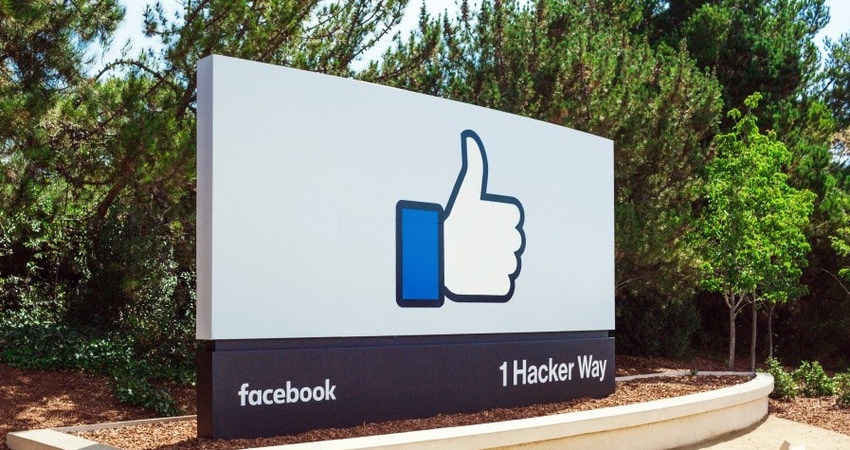Facebook drags tech competitors into privacy brawl
It was only going to be a matter of time before Facebook brought other technology firms into the privacy debacle, as it points the finger at Twitter, Pinterest, LinkedIn, Google and Amazon.
April 17, 2018

It was only going to be a matter of time before Facebook brought other technology firms into the privacy debacle, as it points the finger at Twitter, Pinterest, LinkedIn, Google and Amazon.
In yet another damage limitation log post, Product Management Director David Baser has outlined the various ways Facebook collects information on individuals, irrelevant as to whether they are active users or even have a Facebook account, but has also attempted to deflect attention away from the social media giant. It’s essentially a kick-in-the-spuds version of ‘One for all and all for one’.
“When you visit a site or app that uses our services, we receive information even if you’re logged out or don’t have a Facebook account. This is because other apps and sites don’t know who is using Facebook,” Baser highlighted.
“Many companies offer these types of services and, like Facebook, they also get information from the apps and sites that use them. Twitter, Pinterest and LinkedIn all have similar Like and Share buttons to help people share things on their services. Google has a popular analytics service. And Amazon, Google and Twitter all offer login features. These companies – and many others – also offer advertising services. In fact, most websites and apps send the same information to multiple companies each time you visit them.”
This is perhaps what many investors have been waiting for and fearing. Facebook’s share price might have been dealt the heftiest blow throughout this scandal, but there have been wobbles for the other technology giants such as Twitter and Google. The nervousness surrounding these wobbles most likely came with the knowledge there would be fallout. Facebook is under scrutiny for its data practices, but these are common throughout the industry.
The markets are holding steady for the moment, but it should only be a matter of time before the ripples from this pebble dropped into the technology ocean start to make uneasy sailing for everyone else. Politicians are not happy about the way Facebook has been acting over the last couple of years, which is likely to lead to an investigation and changes to regulations. These changes will not be directed at Facebook solely, they will directly impact the data economy and any company who operates with data as a value exchange for free services.
In terms of what Facebook is actually doing, Baser has said the team collects information on individuals for their own benefit. The data allows Facebook to make content and ads more engaging and relevant (because everyone lives for an engaging ad), with the information collecting through numerous ways including the Like and Share buttons, using Facebook as an authentication tool for other apps, analytics and ad measurement tools. Even if you are not a registered Facebook user, the information is collected as other websites do not know whether the user has a Facebook account or not. This seems to be perfectly justifiable for the social media giant.
For example, should a non-Facebook site include a social plug-in (Like or Share button), visitors to those sites are tracked. Facebook collects IP address, browser/operating system information, and the address of the website or app, irrelevant as to whether there is an associated Facebook account or not. Facebook consistently denied it was tracking non-users until 2015, and while this would not necessarily be deemed well-known, but it is of course for the benefit of the consumer to improve the experience.
Another area is the Facebook Pixel tool, which Baser describes data-gathering for advertisers. Companies who embed this tool on their site can track what users are doing or buying, allowing them to reach this user again through the ‘Custom Audience’ feature on Facebook. Again, this is not for the benefit of Facebook, but for the advertisers, though some might question how effective the tool is. How often have you made a one-time purchase only to be bombarded with ads for the same thing? How many plungers do you actually need? This tool is the reason.
That clears things up; Facebook isn’t violating your privacy and providing hazy explanations for its own benefit, it’s for everyone else. And if you don’t like it, well it’s your fault. There have been preference settings there the entire time, irrelevant as to how well hidden they are, why didn’t you use them? Bad user.
About the Author(s)
You May Also Like








.png?width=300&auto=webp&quality=80&disable=upscale)


_1.jpg?width=300&auto=webp&quality=80&disable=upscale)


.png?width=800&auto=webp&quality=80&disable=upscale)